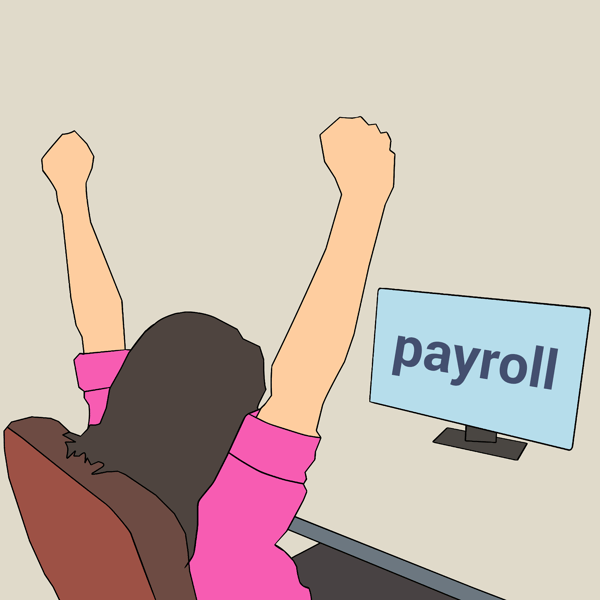9 min read
What Is a PEO & Should Your Company Switch to One?
As your company grows, payroll, HR, and compliance tend to pile up on your desk. Suddenly you’re hearing terms like “PEO,” “co-employment,” and...
Expert payroll management services with a personal touch.
View Solution Read Guide HR Support
HR SupportSimplify and personalize HR with a team of HR experts on-demand.
View Solution Read Guide Time & Attendance
Time & AttendanceWhy spend more unnecessary time and money managing your workforce?
View Solution Read Guide Hiring & Onboarding
Hiring & OnboardingTurn your candidates into employees with hiring & onboarding solutions.
View Solution Read GuideAdd On Solutions automate everyday tasks, prevent mistakes, and simplify business compliance.
View SolutionHelpful downloads and eBooks to empower your business.
Helpful tax and HR alerts to help keep your business compliant.
Payroll and tax-related forms and documents.
Horizon's blog provides valuable insight into payroll, compliance, human resources, and more.
See our client success stories for a case study on how we can help your business.
Payroll and HR strategy requires intelligent technology, personal attention and specialized expertise in the needs and nuances of your business.
We provide payroll and tax processing services for businesses from 1 to 1,000 employees or more. Today, we have nearly 1,000 customers in 40 states.
 A Professional Employer Organization, or PEO, specializes in ubiquitous HR tasks like payroll, tax filings, benefits and retirement package administration, and more. Some companies turn to them to outsource this work so they can focus on growing their business, especially if they lack the internal expertise or the funds to hire dedicated HR staff. In fact, the National Association of Professional Employer Organizations (NAPEO) says 175,000 small and mid-sized businesses currently work with a PEO, which represents about 15% of employers with 10 to 99 employees.
A Professional Employer Organization, or PEO, specializes in ubiquitous HR tasks like payroll, tax filings, benefits and retirement package administration, and more. Some companies turn to them to outsource this work so they can focus on growing their business, especially if they lack the internal expertise or the funds to hire dedicated HR staff. In fact, the National Association of Professional Employer Organizations (NAPEO) says 175,000 small and mid-sized businesses currently work with a PEO, which represents about 15% of employers with 10 to 99 employees.
What Makes a PEO Different?
Many of the services PEOs offer overlap with those of payroll providers and HR outsourcing vendors. But there are a few critical differences. When you sign a contract with a PEO, it becomes the “employer of record” for tax and legal purposes, and you enter into a co-employment relationship. This means that while you are still responsible for managing your business, operations, and employees (including hiring and firing), the PEO is responsible for most or all of the HR functions.
Another way to look at it is that a PEO is a way to outsource HR entirely, where a payroll provider has tools and resources that help you accomplish your own HR more efficiently and with support when you need it.
Certification and accreditation are recent developments in the PEO industry and they can provide extra assurance that your PEO is both competent and ethical. The IRS created the Certified Professional Employer Organization (CPEO) program in 2016 to ensure that PEOs file federal taxes correctly. This voluntary program requires that PEOs carry a surety bond, pay an annual user fee, and file quarterly and annual financial reports with supporting documentation. It’s designed to verify that a PEO has the right knowledge and experience, and it must be renewed each year. The IRS provides a list of CPEOs on its website.
The Employee Services Assurance Corporation (ESAC) is an accrediting body for PEOs. In addition to federal taxation knowledge, accreditation evaluates PEOs on how they handle wages, state and local employment taxes, health insurance, workers compensation insurance, and retirement plan contributions. The ESAC estimates that 5% of PEOs are accredited, and provides an online list.
A Closer Look at the PEO Model
There are several ways PEOs charge for services. Possibilities include a flat fee, a per-employee-per-month (PEPM) fee, an hourly rate, a percentage of each salary, or a percentage of total payroll. Before signing an agreement, be sure to verify how the PEO calculates fees. It’s important to do the math to determine if the annual amount paid to a PEO is more or less than the salary you would pay to on-staff HR professional. For some businesses, this can be a critical factor in the decision to outsource HR work. But, if this kind of in-house expertise is not in the picture for you and your primary focus is growing and stabilizing your business, outsourcing might be an option. According to the NAPEO, “businesses in a PEO arrangement grow 7-9 percent faster, have 10-14 percent lower turnover, and are 50 percent less likely to go out of business.”
Because they can co-employ hundreds or thousands of employees from many different companies, PEOs are often able to provide less expensive or more desirable health insurance and retirement funding options than small businesses can afford on their own. This can be an advantage because benefits are known to influence job candidates’ decisions. The benefits you offer also encourage employees to stay with you. The downside is that your employees may not be happy to switch from their current plans to what the PEO offers.
Working with a PEO requires signing a contract. As always, you should review the terms closely before signing and should not assume that all PEOs offer the same terms. Things to look for include:
Be sure you fully understand how responsibilities are broken down between the PEO and your company. You maintain control of the day-to-day operations of your business, including hiring, firing, and employee management. You’re also still responsible for complying with all applicable wage and hour laws and correct overtime classification of employees (including any decisions between issuing a W-2 or 1099). On the other hand, the PEO usually provides policies and employee manuals, which may include requirements for drug-testing and other types of personnel oversight.
Trade-offs
PEOs can offer many advantages to small and medium-sized businesses, but there are some trade-offs too:
In business there really is no such thing as one-size-fits-all, and that’s why it’s great to have many options for your payroll and HR needs, whether that’s a PEO, payroll services, or an on-staff expert. At Horizon Payroll Services, we work hard to meet each business’s unique and changing needs to create the solution that’s right for you. Contact us to see how.

9 min read
As your company grows, payroll, HR, and compliance tend to pile up on your desk. Suddenly you’re hearing terms like “PEO,” “co-employment,” and...

6 min read
If you dread payroll processing, you’re in good company. In fact, it’s becoming pretty common to outsource all or part of an organization's payroll...
5 min read
Every business has one-of-a-kind payroll needs. A local coffee shop doesn’t require the same payroll schedule, timekeeping system or HR support as a...